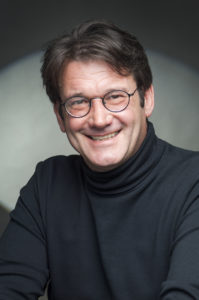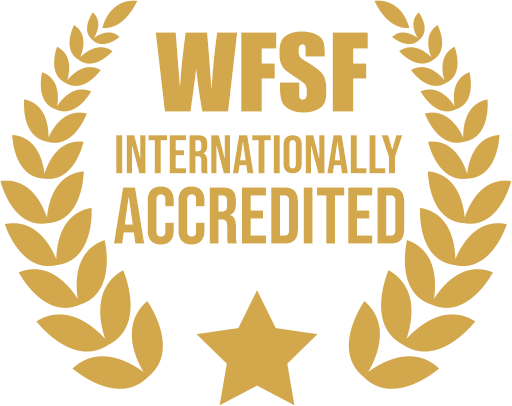The World Futures Studies Federation offers its standards to institutions interested in achieving accreditation in futures studies. Institutions offering programmes which meet the Federation’s standards will be credentialed as an Accredited Foresight Programme. Accreditation will extend for a period of five (5) years. Review of accreditation will be available every five (5) years to ensure programmes continue to maintain high quality standards of the Federation.
We warmly invite you to explore the WFSF Members Directory, where you can find accredited programs by using the filter for Accredited members [click here].
We provide accreditation only to education providers that have been recognized by the relevant department or ministry of education in their country as a tertiary education provider.
Key Documents for download:
Program Accreditation
World Futures Studies Federation Guide for Program Accreditation – effective February 2025, version 5.0 (click here to download)
World Futures Studies Federation Request for Accreditation- effective 1 July 2021, version 2.5 (click here to download)
World Futures Studies Federation Accreditation Process – effective 1 July 2021 (click here to download)
World Futures Studies Federation Institutional Accreditation Submission – effective 1 July 2021, version 2.5 (click here to download)
Course Accreditation
World Futures Studies Federation Guide for Course Accreditation – effective February 2025, version 6.0 (click here to download)
World Futures Studies Federation Request for Accreditation (Course) – effective April 2024, version 3.0 (click here to download)
World Futures Studies Federation Course Accreditation Submission – effective April 2024, version 3.0 (click here to download)
The World Futures Studies Federation (WFSF) is an international non-profit and non-governmental organization, operating under international law. It was founded in 1973 to promote the development of futures studies as an academic discipline.
Beyond offering membership to individuals and institutions over the years, the Executive Board of the Federation has considered how foresight programmes in tertiary education might be further strengthened through an external quality assurance process. Currently no entity exists at the tertiary level to recognize, evaluate and accredit foresight education programmes. Given the history and reputation of the Federation and being a peak body in futures research, the WFSF offers the accreditation of foresight education programmes assuring their quality.
In 2018 the Federation established a set of standards and guidelines for quality assurance in higher education. These accreditation standards deal with the Mission, Faculty, Curriculum, Instruction, Students, and Resources that undergird foresight programmes offered by universities, colleges and schools. Those tertiary education institutions offering programmes which meet the minimum standards outlined by the Board are afforded recognition by the WFSF as offering an Accredited Foresight Programme.
Academic Mission of the Federation
The Federation exists to support and encourage high quality, innovative, foresight education throughout the world. It encourages and supports the development, advancement and dissemination of futures research and foresight education. It provides standards for peer review of foresight education programmes and recognizes high quality programmes through specialized accreditation.
Accreditation Philosophy
The Federation was guided in its development of its accreditation process and standards by a philosophy of quality assurance and continuous improvement. That philosophy is as follows:
- Accreditation should emphasize the intellectual and professional value that a foresight programme affords to its students and graduates.
- Accreditation of tertiary education programmes are based on an institution’s responsibility for the quality of their programme(s) and should be linked to the mission of the department, unit, school or college in which it is housed.
- Accreditation should verify the effectiveness of an institution’s internal quality assurance. It should offer new perspectives and act as a catalyst for programme improvement.
- Accreditation should be sufficiently rigorous to ensure that only high-quality programmes will qualify for accreditation.
- Accreditation standards should be reliable, useful, pre-defined, published, and implemented consistently.
- Accreditation should be flexible and useful to a broad range of missions, departments, schools or colleges and universities, which operate under diverse legislative frameworks.
- Accreditation processes should include programme self-study, external peer review evaluation, external judgement based on standards, institutional award, and periodic follow-up.
- Accreditation actions by the Federation should be published and accessible to the academic community, irrespective of whether the process leads to formal approval.
- Accreditation should be a transparent, evidence-based process carried out by a panel of independent experts that challenges schools to continuous programme improvement in foresight education.
- Accreditation should be conducted over appropriate intervals to ensure that accredited programmes continue to offer high quality foresight education.
- Accreditation processes should encourage innovation and experimentation, growth and quality in foresight education.
- Accreditation processes and fees should be minimized to provide a tangible cost/benefit relationship for programs, departments, schools or colleges and universities.
The World Futures Studies Federation offers its standards to institutions interested in achieving accreditation in futures studies. Institutions offering programmes which meet the Federation’s standards will be credentialed as an Accredited Foresight Programme. Accreditation will extend for a period of five (5) years. Review of accreditation will be available every five (5) years to ensure programmes continue to maintain high quality standards of the Federation.
WFSF Academic Futurists – Jianbang Deng- Tamkang Story 2025 June 13
What are best practices for academic futurists in teaching, research and service? The World Futures Studies Federation hosted Dr. Jianbang Deng, sharing how the Tamkang University’s B.A. in Education and Futures Design and M.A. in Futures Studies earned international accreditation across six quality standards.
Here are links to the slides https://tinyurl.com/WFSF-Tamkang as well as the 39-minute recording for those who missed it, https://vimeo.com/1093206223
WFSF Academic Futurists – Andy Hines- Houston Foresight 2024 Oct 18
What are best practices for academic futurists in teaching, research and service? The World Futures Studies Federation hosted Dr. Andy Hines, sharing how the University of Houston’s M.S. in Foresight earned international accreditation across six quality standards.
Here are links to the slides https://tinyurl.com/WFSF-PAC-Hines as well as the 44-minute recording for those who missed it, https://vimeo.com/1021002191
WFSF Academic Futurists – Fergnani- Science, 2023 July 17
What are best practices for academic futurists in teaching, research and service? The World Futures Studies Federation hosted Dr. Alex Fergnani to hear how faculty should use science, not ideology, to relate futures theory to social science disciplines through empirical research.
Here are the links to the slides https://tinyurl.com/WFSF-PAC-Fergnani as well as the 41 minute recording, https://vimeo.com/845959823
WFSF Academic Futurists – Barry Hughes- Pardee Center, 2023 Mar 15
What are the best practices for academic futurists in teaching, research and service? The World Futures Studies Federation hosted Professor Barry Hughes, Ph.D. founder of the Pardee Center for International Futures and the International Futures (IFs) system.
He shared how graduate students from the Korbel School of International Studies at the University of Denver are using the IFs system to inform futures research for policymakers.
Here are links to the slides https://tinyurl.com/2p8etcsf as well as the 44-minute recording for those who missed it, https://vimeo.com/808333298
WFSF Academic Futurists – Juha Kaskinen, 2022 Nov 3
WFSF Academic Futurists – Kaskinen- Turku.mp4 from PeakFutures on Vimeo.
WFSF Nov 3rd Thursday webinar for Academic Futurists. Here is the link to the 41-minute recording https://vimeo.com/767374751 and the slides.
Our speaker was Dr. Juha Kaskinen, Director of Finland Futures Research Centre, who shared about their Master’s degree in Futures Studies, offered by the University of Turku’s School of Economics. Listen in to discover why Turku, for nearly 30 years has set a high bar in teaching futures, as well as serving clients across Finland and beyond.
Some 49 WFSF members registered for our Nov 3rd webinar, with 20 attending, from four continents, Oceania, Africa, Americas, and Europe. This is the 3rd of a three-part series that WFSF’s Program Accreditation Council hosted in 2022 for faculty teaching futures studies.
Our quarterly series will continue to build community among Academic Futurists in 2023, as we prepare for the Federation’s 50th anniversary Conference in Paris next October.
WFSF Academic Futurists – André Roux – Stellenbosch, 2022 Sept 1
What are best practices for academic futurists to build strong careers in teaching, research and service? The World Futures Studies Federation hosted Professor André Roux to share his experience as an academic futurist at University of Stellenbosch, South Africa. This is the second of a three-part series that the Program Accreditation Council hosted for faculty teaching futures studies. Some 45 WFSF members registered for the Sept. 1st webinar, with 20 attending, from five continents, Asia, Oceania, Africa, Americas, and Europe. Roux shared the origins of the Institute for Futures Research (IFR) and the academic M.Phil., and how the synergy between the two has provided outstanding client and student outcomes in Southern Africa. Here is a link to the slides, https://tinyurl.com/WFSF-PAC-Roux, and to the 38-minute recording, for those who missed it: https://vimeo.com/745443937
WFSF Academic Futurists – Guillermina Benavides Rincón– 16 June 2022
What are best practices for academic futurists to build strong careers in teaching, research and service?
This webinar was the first of three webinars in 2022, hosted by WFSF’s Programme Accreditation Council for university faculty or independent lecturers. Thirty WFSF members registered for the June 16th webinar, with 13 attending, from four continents, Asia, Africa, Americas, and Europe.
Our speaker was Guillermina Benavides Rincón, PhD, research professor and director of the Master’s Program in Strategic Foresight at Monterrey Tech, Mexico, who shared 1) how she became an academic in public policy and futures studies, and 2) how the master program has drawn on different methods to help their graduate students build robust foresight competencies.
The next Council webinar is being planned for August/September to build community among Academic Futurists–to enable them to mutually strengthen each other’s teaching, research, and service in higher education.
Here is a link to the 42-minute recording, for those who missed it. https://vimeo.com/721431344
Official in Charge: WFSF Executive Board member, Dr. Luke van der Laan


